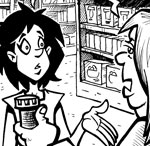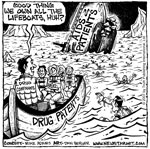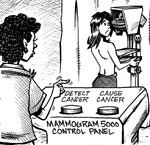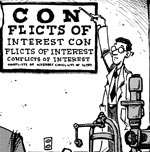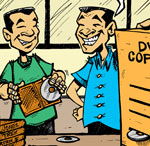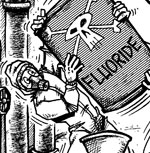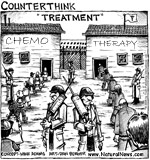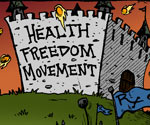The Foods That Help Your Brain Make Serotonin, and the Foods That Keep Your Brain from Making Serotonin
| Share on Facebook | Share on Twitter | Share on Google+ |
One way of dealing with depression is not drugs or herbs but diet, by increasing the brain's supply of serotonin.
A surprising number of foods contain serotonin ready-made. The two foods that are highest in serotonin black walnuts, which are about the size of a fingernail and can only be cracked with a hammer, and butternuts, a close relative of the American black walnut that grows at high elevations east of the Mississippi River, are not readily available. Foods that increase serotonin that you won't have any trouble finding in most markets include (with their serotonin content):
- Bananas (15 micrograms/gram)
- English walnuts (87 micrograms/gram)
- Kiwi fruit (5 micrograms/gram)
- Pecans (29 micrograms/gram)
- Pineapple (18 micrograms/gram)
- Plantains (30 micrograms/gram)
- Plums (4 micrograms/grams)
- Tomatoes (2 micrograms/gram)
The smaller Fuerte and Haas avocados from California are relatively serotonin-rich foods but the larger alligator or Booth avocados from Florida are not. Of course, you can also help your brain make its own serotonin by eating foods that are high in the amino acid tryptophan.
Foods that are high in tryptophan include:
- Any tart fruit
- Black-eyed peas
- Most nuts
- Mung beans
- Pinto beans
- Quinoa
- Rice
- Tahini
- Tapioca
Eating these foods will provide your brain with the tryptophan it needs for making serotonin.(See tryptophan and serotonin).
Tryptophan, however, has to compete with two other amino acids for entry into the brain. When these amino acids, leucine and phenylalanine, are in high concentrations in the bloodstream, the brain has difficulty absorbing tryptophan. It's important not to eat foods that are high leucine and phenylalanine when you eat foods that are high in tryptophan, or within four hours of taking 5-HTP. Some of these foods include:
- Chicken giblets
- Dried egg white (rehydrated for use in cooking, or as part of a cake or cookie mix)
- Dried tofu
- Fried pork rinds (the American snack food)
- Gelatin/jelly/Jell-o
- Gruyere cheese
- Parmesan cheese
- Roast beef
- Roast lamb
- Romano cheese
- Seal
- Sesame seeds
- Soy flour
- Soy protein isolates
- Veal
- Whale meat
Eating foods that are high in leucine + phenylalanine cancels out the benefits of eating foods that are high in trytophan. That is why many people find it more practical to boost serotonin levels with the help of supplemental 5-HTP.
What about chocolate and serotonin? One of the effects of increasing serotonin levels is to reduce the appeal of formerly favorite foods, such as chocolate. When we are depressed, we often want to eat, but when depression is treated, favorite foods no longer taste as good, and disliked foods are no longer as unpleasant.longer as unpleasant. (Learn more about serotonin and depression).
Selected Reference:
McCabe C, Mishor Z, Cowen PJ, Harmer CJ. Diminished neural processing of aversive and rewarding stimuli during selective serotonin reuptake inhibitor treatment. Biol Psychiatry. 2010 Mar 1;67(5):439-45. Epub 2009 Dec 24.
Increasing Serotonin With Foods & Vitamins
-
Skin CareMen Skin Care
-
Free ResourcesFree eBooks
-
To think is to practice brain chemistry.Deepak Chopra
-
Featured Health Supplement"...I also suffer from mild-to-moderate depression, so several months ago as an experiment I ordered a few bottles of the Neuro-Natural Serenity formula, but never took it consistently. However, I started taking it faithfully last week at full dose and already my spirits are lifting and I have a greater clarity of mind."
Cathi, USA -
